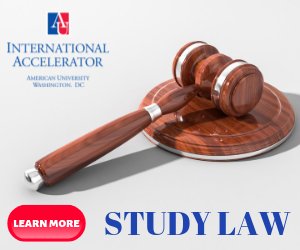Taking the New York Bar as a Foreign Lawyer
To practice law in the United States, any and all lawyers – foreign or domestic – must be admitted to the bar association of the state in which they wish to practice. As a result of this fragmented system, each US state (and the nation’s capital, Washington D.C.) establishes its own rules for bar admission.
Because of this patchwork system, some states have made the process easier than others and taking the New York bar as a foreign lawyer is easier that most. While some 23 state bar associations require all bar applicants, regardless of their origin, to earn a law degree from a school accredited by the American Bar Association, New York – one of the nation’s most attractive legal markets – is not one of them. In fact, as compared to some of the nation’s other large markets, taking the New York Bar as a foreign lawyer can be a straightforward process.
Straightforward does not, however, mean easy. The New York State Board of Law Examiners* (BOLE) takes its state’s role as the United States’ most prominent legal market seriously and has established very definite requirements that all would-be applicants must meet. According to Section 520.6 of the Rules of the Court of Appeals for the Admission of Attorneys and Counselors at Law, foreign lawyers must satisfy four requirements:
- Applicants must have a "qualifying degree" that satisfies the educational requirements to practice law in a foreign country. This degree must be a degree in law.
- The qualifying degree must be from a law school accredited by the government of the foreign country and must be deemed qualified and approved
- The applicant’s must have successfully completed a legal program of equivalent length to the Juris Doctor legal education provided by American Bar Association (ABA) accredited schools in the United States. Legal education in the US is traditionally a full-time, three year course of study – foreign lawyers, accordingly, need similar credentials.
- Similarly, the program and course of study successfully completed by the applicant must be the substantially equivalent to that of the Common Law education provided by an ABA-approved law school in the United States. Other examples of countries that practice common law include The United Kingdom, Canada, Australia, New Zealand, and Israel.
If a foreign-educated lawyer thinks that he or she meets these standards they must begin their application to sit for the New York bar examination by completing the online Foreign Evaluation Form at the NYSBOLE website. Although the Foreign Evaluation form is a necessary first step in the process it is not the same thing as an application to sit for the bar exam. After it is approved, applicants must complete the (appropriately named) Online Bar Exam Application and pay the $750 application fee.
Even if a foreign-educated lawyer does not that he or she meets these standards taking the New York Bar as a foreign lawyer is still an option. Individuals with, for example, a two-year common law degree or even a three-year degree in civil law should still apply with the NYSBOLE to see if they are eligible to take the bar exam after completing a Master of Laws (LLM) program in the US. Because the LLM programs typically take one year they are significantly less expensive and time consuming that a further three years of legal study in the US and proof that taking the New York Bar as a foreign lawyer is an attainable goal.
* The NYSBOLE is the formal name of the organization which is responsible for administering the bar examination to candidates seeking admission to practice law in the State of New York.

